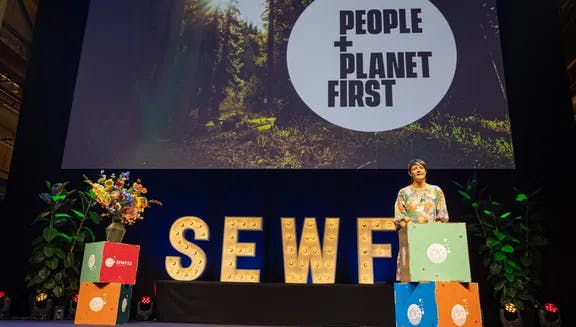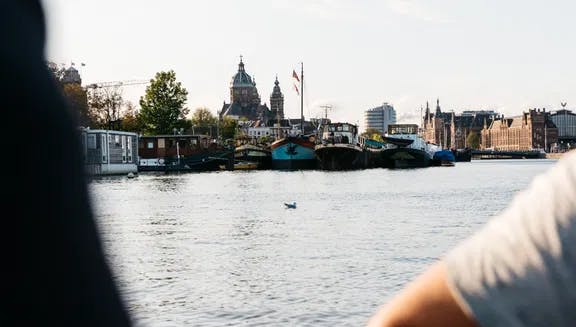
6 ideas for bringing CSR principles into your daily business practice
CSR as model promotes responsible, diverse and inclusive work environments that not only increase environmental awareness and encourage community cohesion but also provide job opportunities for people who may struggle to find work. This article highlights six steps that can help connect international companies with social initiatives in the Amsterdam Area.
Socially responsible procurement
In today’s business climate, consumers are looking for ways to shop responsibly. Buy Social makes this easier to do. Its Social Impact Market list is a register of socially responsible businesses that provides information about a range of social enterprises, products and services. It’s a great way to make others aware of how your company uses CSR principles in practice. Employing people with physical impairments or mental-health issues who can contribute their skills and services can add value to businesses, as supervised work-learning organisations such as Pantar have shown.
Creating sustainable offices
Sustainability in offices is a growing trend in the Amsterdam Area, which is aiming to become Europe’s most circular region, i.e. working towards a circular economy and following cradle-to-cradle principles. One of the initiatives with which the Amsterdam Area is striving towards that goal is through C-creators. Involving 30 public and private parties, the programme encourages sharing knowledge in collaborative projects and masterclasses that benefit many relevant actors. The ultimate goal is to get the construction sector on the road to circularity. This sort of collaboration is a great way to connect partners from industry, governments and academia, who can work together on large sustainable development projects.
Conscious hiring
A key attribute of CSR is giving opportunities to those who may otherwise find it difficult to find work. Initiatives such as WSP, UAF and Emma at Work all place value on the skills and contributions that people of all ages can offer, including people with an impairment, refugees and people with chronic conditions. Initiatives like this also provide opportunities for social interaction, help build self-confidence and encourage independence. Help for refugees can include career coaching, mentoring, financial aid and general advice on working in the Netherlands. Other initiatives support young people who are having a hard time entering the job market, particularly those who are dealing with ongoing health issues.
Sustainable transit
Getting from A to B is high on the CSR agenda, with a range of initiatives in play designed to make transport as efficient and sustainable as possible. Subscription bike services such as Swapfiets are easy to join, keep your bike serviced and you in the saddle. Studies have shown that commuters who ditch their car and use a bike instead not only tend to have fewer sick days, they’re also more productive and more engaged. Another laudable initiative is a clean electric taxi service that also offers jobs to the over-50s. Whatever the plan, it’s a win-win situation as CSR practices like these can lower costs and carbon footprints.
Social experiences & leisure activities
There are many fun and educative ways to combine work and play with CSR. Two outstanding Amsterdam initiatives prove that thinking outside the box gets results. At Ctaste in Amsterdam, diners are served in total darkness by visually impaired staff, who would otherwise be overlooked in the hospitality industry. And Plastic Whale are hell-bent on ridding the city’s iconic canals of plastic waste and transforming it into valuable raw material for boats and sleek office furniture. Plus, paying volunteers can join clean-up tours to see Amsterdam they fish plastic from the picturesque canals.
Conscious shopping
Combining social values with commercial ventures can offer sustainable benefits. Take CRE8, a gift shop and workshop that trains disadvantaged young people to become craftspeople. Or Tiny Miracles, a social foundation and design studio whose mission is to empower the world’s poorest communities. Centred on five pillars – education, healthcare, life skills, income generation and happiness – they teach a range of skills designed to help people become self-sufficient. Initiatives such as these provide real opportunities while providing employment and social contact.
In summary
These six aspects of CSR offer insight into how businesses can adopt ideas to grow their business, employ people with great skills and contribute to the transition to a circular economy that is all about ensuring fairness and sustainability into the future.
Related articles

MEAN WELL supports impact entrepreneurship in Amsterdam

Celebrating SEWF23, a milestone in Amsterdam's journey to a new economy

Building an impact-driven city

Join SEWF23 week (9-13 October) in Amsterdam

Amsterdam to host the Social Enterprise World Forum 2023
